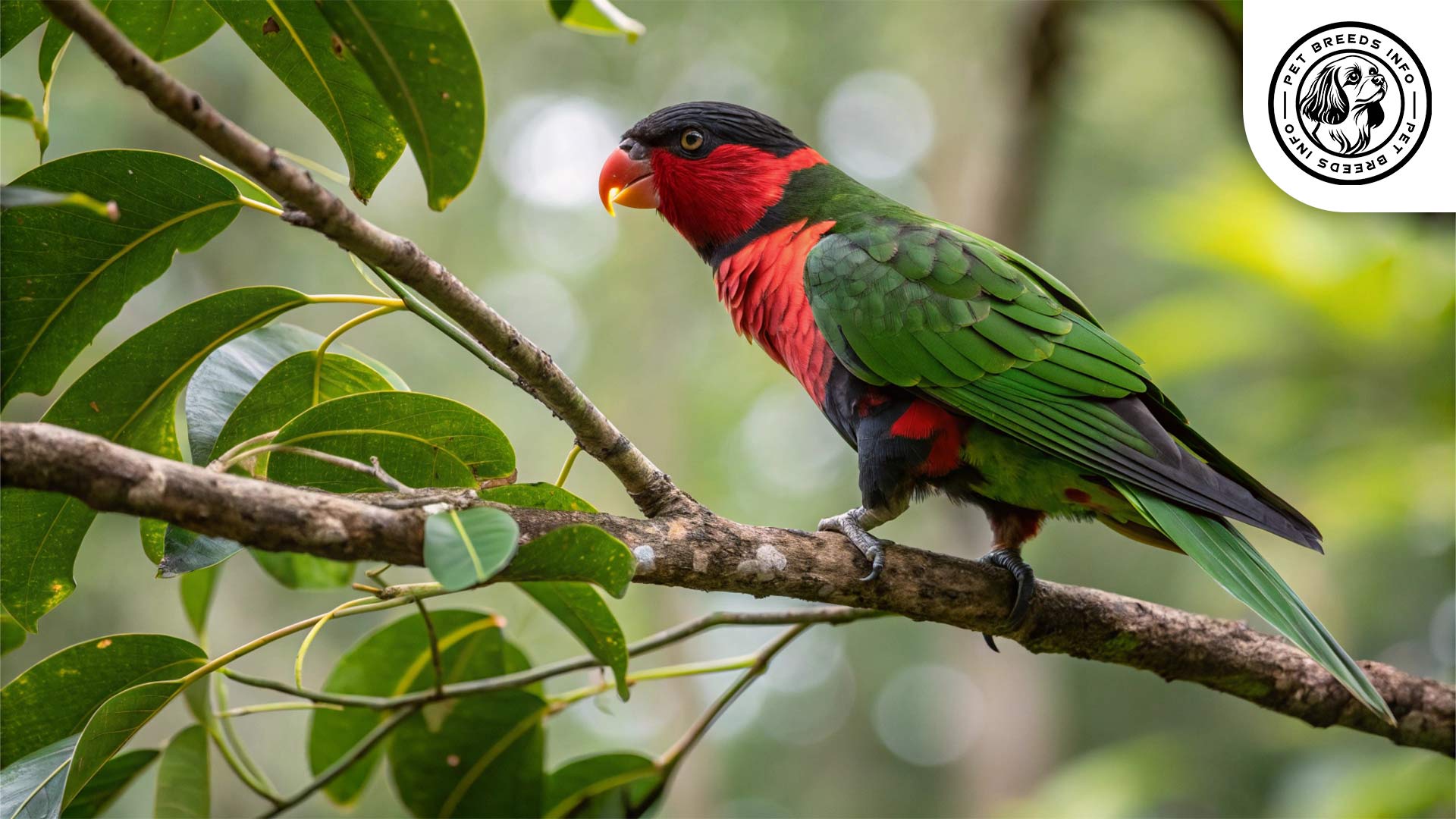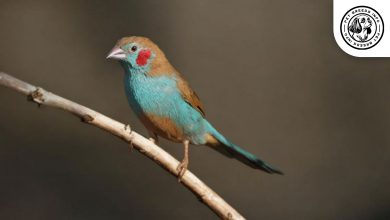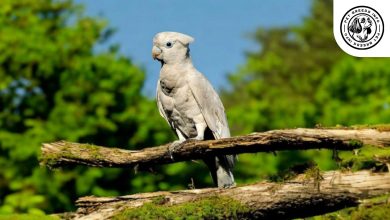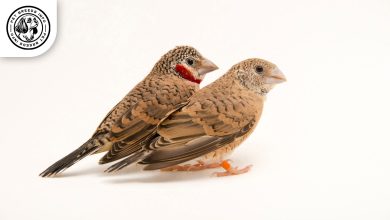Black-capped Lory Bird Breed: Personality, Lifespan & Care
General Introduction of the Breed
The Black-capped Lory (Lorius lory) is a strikingly colorful species of parrot native to the forests of New Guinea and surrounding islands. It is also known as the Tricolor Lory due to its bright red, blue, and black plumage. This species has long been admired for its beauty, intelligence, and playful nature, making it a popular pet among bird enthusiasts.
Table of Contents
| Common Name | Black-capped Lory |
| Scientific Name | Lorius lory |
| Origin | New Guinea and nearby islands |
| Size | Medium, about 30 cm (12 inches) |
| Lifespan | 15–25 years |
| Colors | Red, blue, black with orange beak and reddish-brown eyes |
| Talking Ability | Moderate; can mimic words and sounds |
| Noise Level | High; often vocal and can screech |
| Social Behavior | Highly social, bonds well with humans, needs daily interaction |
Physical Characteristics
The Black-capped Lory is a medium-sized parrot, typically measuring around 30 cm (12 inches) in length and weighing between 200 to 280 grams. Its most distinctive feature is the black “cap” on its head, contrasting with the bright red body and blue wings. The tail is medium in length with a mix of red and blue feathers. The beak is bright orange, and the eyes are a deep reddish-brown, adding to its striking appearance.
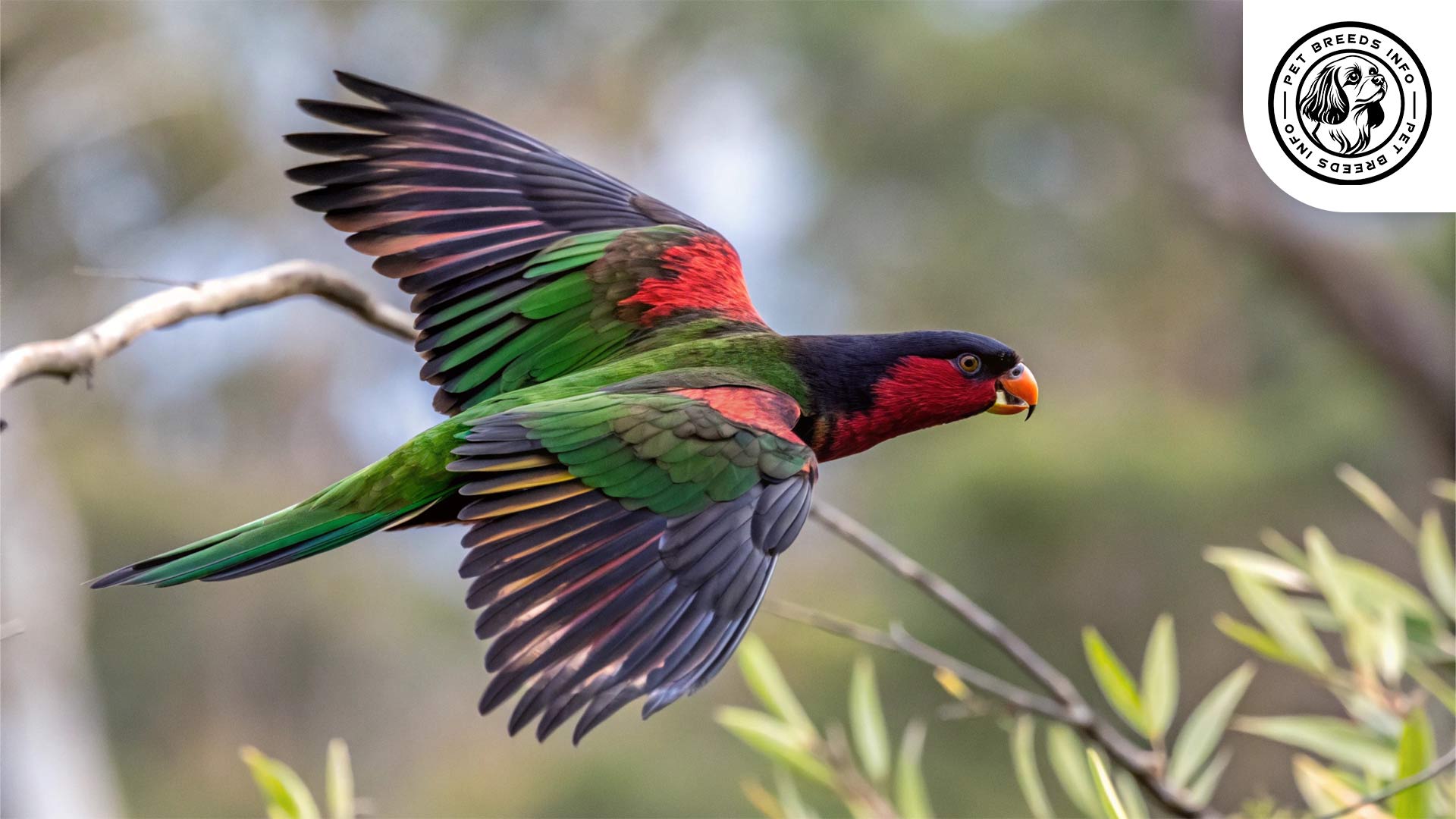
Personality and Temperament
These parrots are highly intelligent and quick learners, capable of mimicking sounds and words with practice. They have high energy levels and require plenty of stimulation in the form of toys, interaction, and mental challenges. Black-capped Lories form strong bonds with their owners and can be quite affectionate. They thrive on social interactions and do well in households where they receive plenty of attention.
Care and Maintenance Requirements
Black-capped Lories need a spacious cage with room for exercise and play. They enjoy climbing, hanging, and chewing on branches or toys. Due to their active nature, they require regular out-of-cage time in a safe and supervised environment. They are relatively easy to groom, but their diet requires special attention as lories consume nectar, which results in a loose and messy stool. Cleaning their cage frequently is essential to maintain hygiene.
Read More: Zebra Dove
Diet and Nutrition
Unlike seed-eating parrots, Black-capped Lories primarily consume nectar, fruits, and pollen in the wild. As pets, they require a specialized diet consisting of high-quality commercial lory food or a homemade mix of fruit purees and nectar substitutes. Their diet should include fresh fruits such as papaya, mango, apples, and berries. Foods to avoid include chocolate, avocado, caffeine, and high-fat or processed foods.
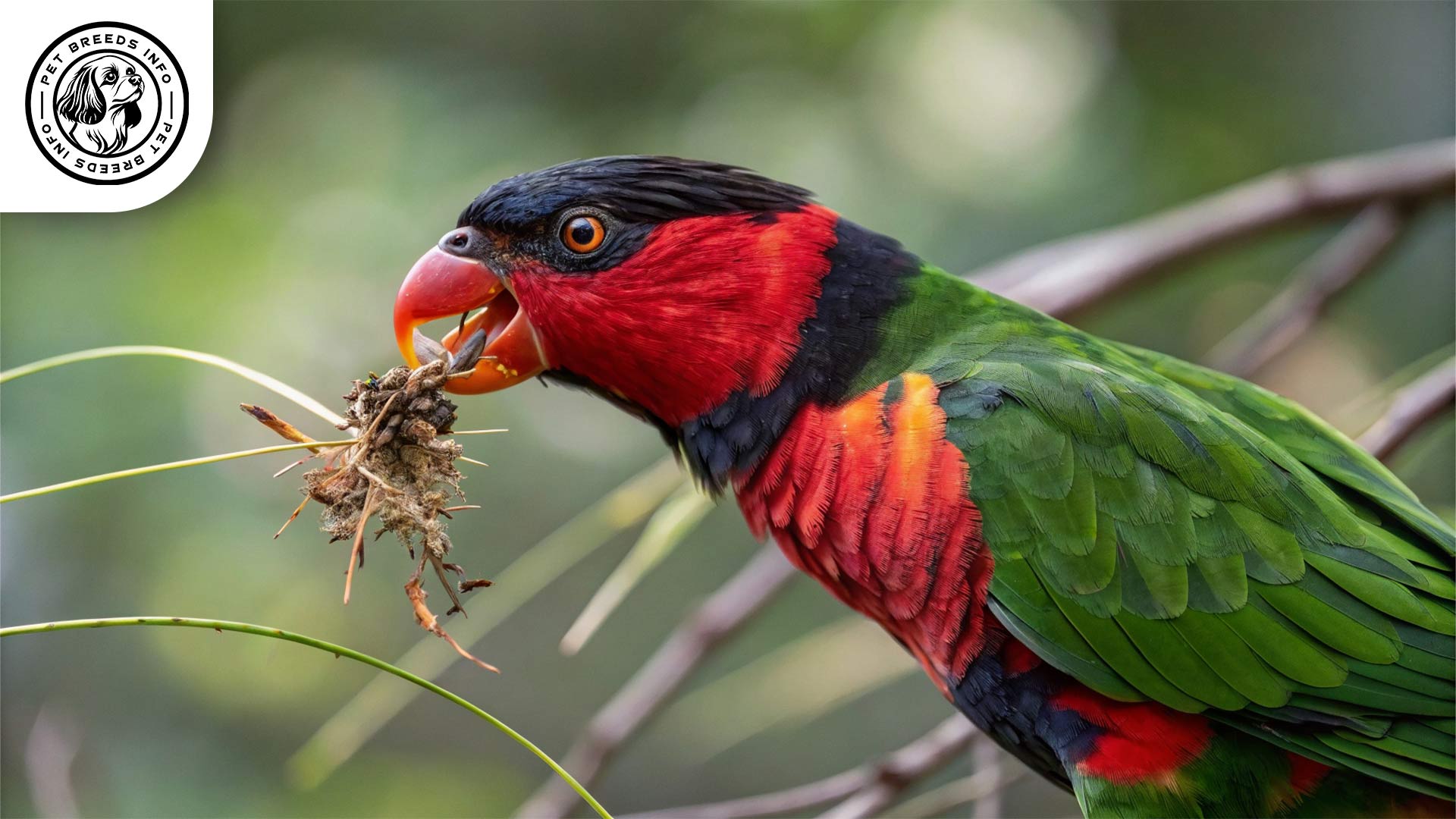
Health and Common Medical Issues
The Black-capped Lory is generally a healthy bird with a lifespan of 15 to 25 years when properly cared for. Common health issues include bacterial infections, vitamin deficiencies, and beak or feather abnormalities. Regular veterinary check-ups, a proper diet, and a clean environment are crucial for preventing illnesses. Vaccinations are not usually required, but parasite control and routine examinations are recommended.
Training and Behavior Management
Training a Black-capped Lory is relatively easy due to its intelligence and eagerness to learn. Positive reinforcement techniques such as treats and praise work best. Early socialization is key to reducing unwanted behaviors like excessive screeching. Teaching basic commands and setting boundaries ensures a well-mannered pet.
Read More: Zebra Finch
Interaction with Other Animals and Humans
These birds are highly social and enjoy interacting with humans, including children, but they require gentle handling. They can coexist with other birds but may show dominance or territorial tendencies. They are ideal for families or individuals who can dedicate time to bonding and enrichment activities.
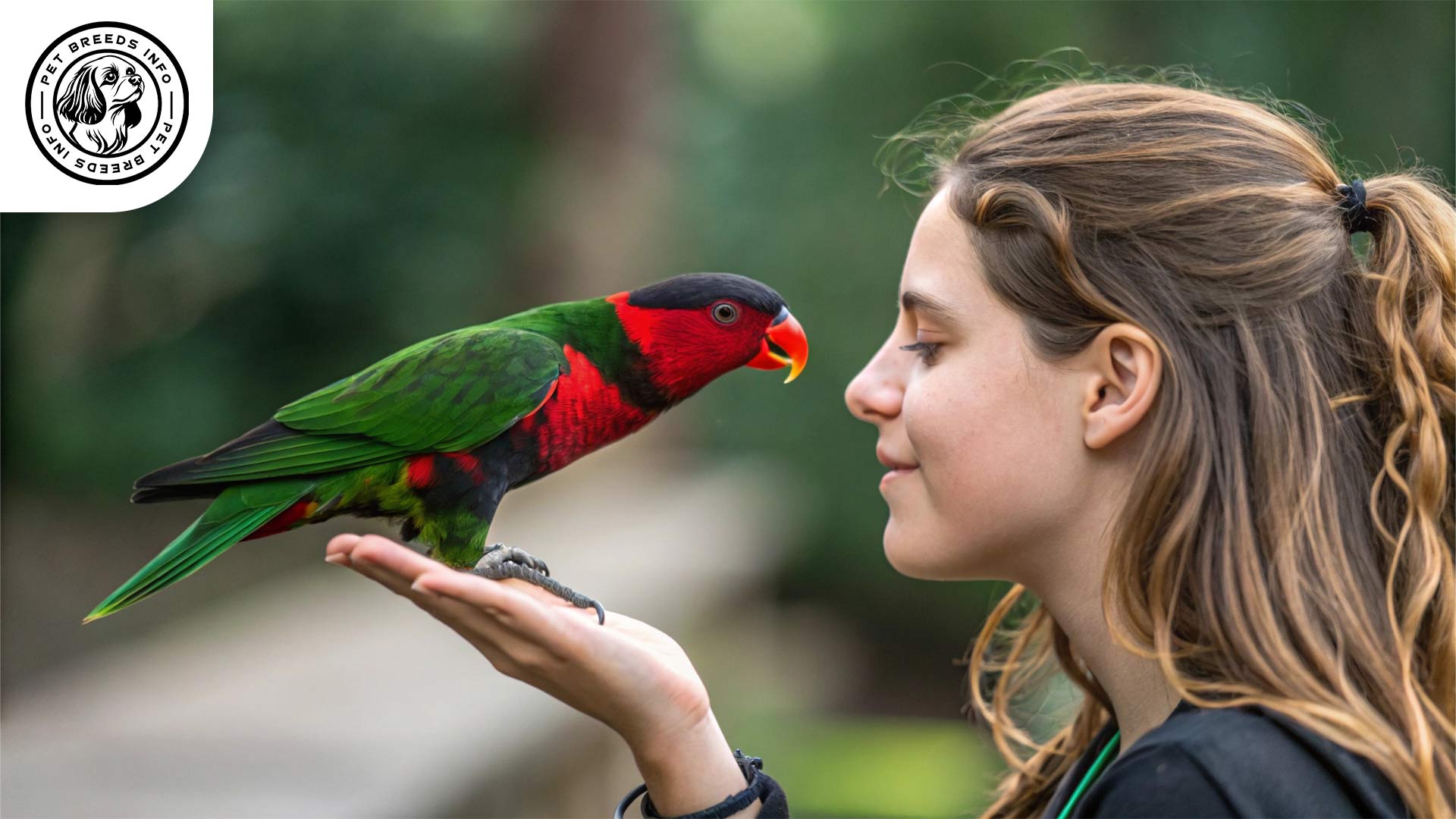
Price and Availability
The price of a Black-capped Lory varies depending on factors such as breeder reputation and the bird’s health, typically ranging from $500 to $1,200. When purchasing, it is essential to find a reputable breeder who provides proper care and documentation. Adoption from bird rescue centers is also an option for those looking to provide a home to a rescued lory.
Conclusion and Final Thoughts
The Black-capped Lory is a stunning and intelligent pet bird best suited for owners who can provide time, care, and patience. Its high energy levels and specialized diet require dedicated attention, making it ideal for experienced bird enthusiasts. If you are looking for an interactive and affectionate feathered companion, the Black-capped Lory may be the perfect pet for you.
Read More: Yellow-faced Parrotlet Bird
FAQ
What makes the Black-capped Lory unique as a pet?
Its vivid colors, social nature, and nectar-based diet make it stand out from other parrots.
Can the Black-capped Lory talk?
Yes, they can learn to mimic some words and sounds, though not as clearly as some other parrots.
How social is the Black-capped Lory?
Very social. They form strong bonds with their humans and need daily interaction to stay happy.
Are Black-capped Lories noisy?
Yes, they have a loud voice and may screech, especially if bored or seeking attention.
